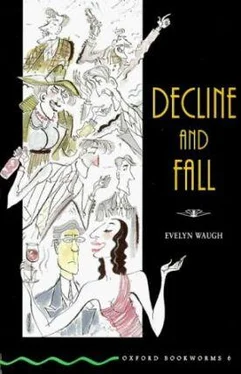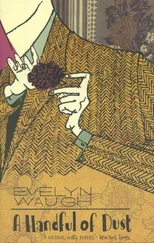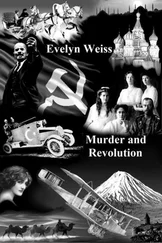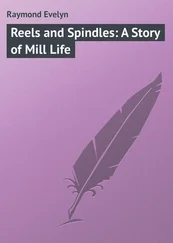'I don't think that sounds very much like life, said Paul rather sadly.
'Oh, but it is, though. You see, the nearer you can get to the hub of the wheel the slower it is moving and the easier it is to stay on. There's generally someone in the centre who stands up and sometimes does a sort of dance. Often he's paid by the management, though, or, at any rate, he's allowed in free. Of course at the very centre there's a point completely at rest, if one could only find it: I'm not sure I am not very near that point myself. Of course the professional men get in the way. Lots of people just enjoy scrambling on and being whisked off and scrambling on again. How they all shriek and giggle! Then there are others, like Margot, who sit as far out as they can and hold on for dear life and enjoy that. But the whole point about the wheel is that you needn't get on it at all, if you don't want to. People get hold of ideas about life, and that makes them think they've got to join in the game, even if they don't enjoy it. It doesn't suit everyone.
'People don't see that when they say «life» they mean two different things. They can mean simply existence, with its physiological implications of growth and organic change. They can't escape that ‑ even by death, but because that's inevitable they think the other idea of life is too ‑ the scrambling and excitement and bumps and the effort to get to the middle, and when we do get to the middle, it's just as if we never started. It's so odd.
'Now you're a person who was clearly meant to stay in the seats and sit still and if you get bored watch the others. Somehow you got on to the wheel, and you got thrown off again at once with a hard bump. It's all right for Margot, who can cling on, and for me, at the centre, but you're static. Instead of this absurd division into sexes they ought to class people as static and dynamic. There's a real distinction there, though I can't tell you how it comes. I think we're probably two quite different species spiritually.
'I used that idea of the wheel in a cinema film once. I think it rather sounds like it, don't you? What was it I came back for?
'A nail file.
'Oh yes, of course. I know of no more utterly boring and futile occupation than generalizing about life. Did you take in what I was saying?
'Yes, I think so.
'I think I shall have my meals alone in future. Will you tell the servants? It makes me feel quite ill to talk so much. Good night.
'Good night, said Paul.
* * *
Some months later Paul returned to Scone College after the absence of little more than a year. His death, though depriving him of his certificates, left him his knowledge. He sat successfully for smalls and Matriculation and entered his old college once more, wearing a commoner's gown and a heavy cavalry moustache. This and his natural diffidence formed a complete disguise. Nobody recognized him. After much doubt and deliberation he retained the name of Pennyfeather, explaining to the Chaplain that he had, he believed, had a distant cousin at Scone a short time ago.
'He came to a very sad end, said the Chaplain, 'a wild young man.
'He was a very distant cousin, said Paul hastily.
'Yes, yes, I am sure he was. There is no resemblance between you. He was a thoroughly degenerate type, I am afraid.
Paul's scout also remembered the name.
'There used to be another Mr Pennyfeather on this staircase once, he said, 'a very queer gentleman indeed. Would you believe it, sir, he used to take off all his clothes and go out and dance in the quad at night. Nice quiet gentleman, too, he was, except for his dancing. He must have been a little queer in his head, I suppose. I don't know what became of him. They say he died in prison. Then he procceded to tell Paul about an Annamese student who had attempted to buy one of the Senior Tutor's daughters.
On the second Sunday of term the Chaplain asked Paul to breakfast. 'It's a sad thing, he said, 'the way that the 'Varsity breakfast ‑ «brekker» we used to call it in my day ‑ is dying out. People haven't time for it. Always off to lectures at nine o'clock, except on Sundays. Have another kidney, won't you?
There was another don present, called Mr Sniggs, who addressed the Chaplain rather superciliously, Paul thought, as 'Padre'.
There was also an undergraduate from another college, a theological student called Stubbs, a grave young man with a quiet voice and with carefully formed opinions. He had a little argument with Mr Sniggs about the plans for rebuilding the Bodleian. Paul supported him.
Next day Paul found Stubbs' card on his table, the corner turned up. Paul went to Hertford to call on Stubbs, but found him out. He left his card, the corner turned up. Two days later a little note came from Hertford:
Dear Pennyfeather,
I wonder if you would care to come to tea next Tuesday, to meet the College Secretary of the League of Nations Union and the Chaplain of the Oxford prison. It would be so nice if you could.
Paul went and ate honey buns and anchovy toast. He liked the ugly, subdued little College, and he liked Stubbs.
As term went on Paul and Stubbs took to going for walks together, over Mesopotamia to Old Marston and Beckley. One afternoon, quite lighthearted at the fresh weather, and their long walk, and their tea, Stubbs signed Randall Cantuar in the visitors' book.
Paul rejoined the League of Nations Union and the O.S.C.U. On one occasion he and Stubbs and some other friends went to the prison to visit the criminals there and sing part‑songs to them.
'It opens the mind, said Stubbs, 'to see all sides of life. How those unfortunate men appreciated our singing!
One day in Blackwell's bookshop Paul found a stout volume, which, the assistant told him, was rapidly becoming a best‑seller. It was called Mother Wales, by Augustus Fagan. Paul bought it and took it back with him. Stubbs had already read it.
'Most illuminating, he said. 'The hospital statistics are terrible. Do you think it would be a good idea to organize a joint debate with Jesus on the subject? The book was dedicated To my wife, a wedding present'. It was eloquently written. When he had read it Paul put it on his shelves next to Dean Stanley's Eastern Church.
One other incident recalled momentarily Paul's past life.
One day at the beginning of his second year, as Paul and Stubbs were bicycling down the High as from one lecture to another, they nearly ran into an open Rolls-Royce that swung out of Oriel Street at a dangerous speed. In the back, a heavy fur rug over his knees, sat Philbrick. He turned round as he passed and waved a gloved hand to Paul over the hood.
'Hullo! he said; 'hullo! How are you! Come and look me up one day. I'm living on the river ‑ Skindle's.
Then the car disappeared down the High Street, and Paul went on to the lecture.
'Who was your opulent frient? asked Stubbs, rather impresed.
'Arnold Bennet, said Paul.
'I thought I knew his face, said Stubbs.
Then the lecturer came in, arranged his papers, and began a lucid exposition of the heresies of the second century. There was a bishop of Bithynia, Paul learned, who had denied the Divinity of Christ, the immortality of the soul, the existence of good, the legality of marriage, and the validity of the Sacrament of Extreme Unction. How right they had been to condemn him!
It was Paul's third year of uneventful residence at Scone. Stubbs finished his cocoa, knocked out his pipe and rose to go. 'I must be off to my digs, he said. 'You're lucky staying in college. It's a long ride back to Walton Street on a night like this.
'D'you want to take Von Hugel? asked Paul.
'No, not to‑night. May I leave it till to‑morrow?
Читать дальше












